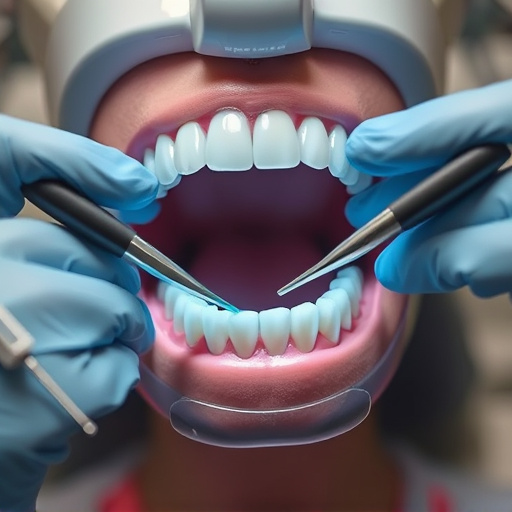Special needs dentistry is a specialized field catering to the unique oral health requirements of individuals with disabilities, focusing on skills to accommodate diverse communication methods, manage sensory sensitivities, and build trust. By collaborating with support networks, dentists create nurturing environments tailored to individual patient needs. Behavioral support techniques, such as visual aids and positive reinforcement, are crucial for managing patient behavior during procedures, ensuring comfort and enabling comprehensive treatment, including complex procedures. When selecting a provider, prioritizing those with behavioral support training is key, combining preventive care, routine cleanings, educational resources, and crisis management strategies to meet the unique demands of special needs individuals effectively.
Special needs dentistry is a specialized field addressing the unique oral health requirements of individuals with disabilities. As these populations often face additional challenges during dental procedures, behavioral support has emerged as an integral component of quality care. This article explores the significance of behavioral support in special needs dentistry and provides guidance on identifying providers equipped to offer such assistance. By understanding these key aspects, patients and caregivers can ensure optimal oral health outcomes.
- Understanding Special Needs Dentistry and Its Unique Challenges
- The Role of Behavioral Support in Dental Care for Special Needs Individuals
- Finding and Evaluating Providers Trained in Behavioral Support for Optimal Patient Care
Understanding Special Needs Dentistry and Its Unique Challenges

Special needs dentistry is a specialized field that focuses on providing dental care to individuals with various physical, mental, and developmental disabilities. It requires dentists to have a deep understanding of the unique challenges faced by these patients, who often need extra support during routine procedures. From adapting to their specific communication methods to managing sensory sensitivities, special needs dentistry involves a range of skills to ensure comfort and safety.
Unlike general dentistry, which primarily deals with preventive care, teeth cleaning, and occasional interventions like wisdom tooth removal, special needs dentistry is more about building trust, addressing complex medical histories, and tailoring treatments to suit individual requirements. Dentists in this field work closely with patients’ support networks to create a nurturing environment, ensuring that every dental visit is as positive and successful as possible.
The Role of Behavioral Support in Dental Care for Special Needs Individuals

For individuals with special needs, a trip to the dentist can often be challenging and stressful due to various physical, cognitive, or emotional differences. This is where behavioral support plays a pivotal role in making dental care more accessible and positive for these patients. Trained professionals understand that managing behavior is as essential as providing clinical care, especially when dealing with special needs dentistry.
Behavioral support techniques can include strategies such as visual aids, positive reinforcement, and structured routines to help individuals feel secure and cooperative during dental procedures. This approach not only facilitates a smoother experience for both the patient and the dentist but also allows for more comprehensive and effective treatment. From managing anxiety to assisting with complex procedures like fitting dental crowns or providing emergency dental care, behavioral support is an indispensable component of quality special needs dentistry. Even cosmetic fillings, which are often sought after for aesthetic reasons, can be successfully executed with the help of such strategies.
Finding and Evaluating Providers Trained in Behavioral Support for Optimal Patient Care

When seeking special needs dentistry providers, evaluating those trained in behavioral support is paramount for delivering optimal patient care. Parents and caregivers should thoroughly research and inquire about the provider’s expertise in managing behavioral challenges during dental procedures. This includes understanding their approach to communication strategies, sensory considerations, and crisis management techniques.
Incorporating preventive dentistry into the equation further enhances overall oral health outcomes. Look for providers who not only excel in addressing complex needs but also prioritize comprehensive dental care, including routine cleanings, check-ups, and educational resources for both patients and families. A provider equipped to handle behavioral support alongside these essential services ensures a holistic approach to meeting the unique demands of special needs individuals.
Special needs dentistry requires a unique approach, and behavioral support plays a vital role in ensuring positive patient experiences. By understanding the specific challenges faced by individuals with special needs, dental providers can offer tailored care. Trained professionals equipped with behavioral support techniques are essential for creating a calm and comfortable environment, making regular dental visits more accessible and less stressful. When choosing a provider, seeking out those specialized in behavioral support for special needs dentistry guarantees optimal patient care and sets the stage for successful oral health management.














